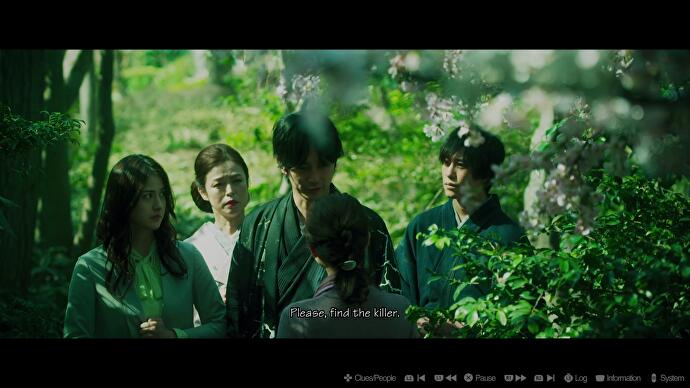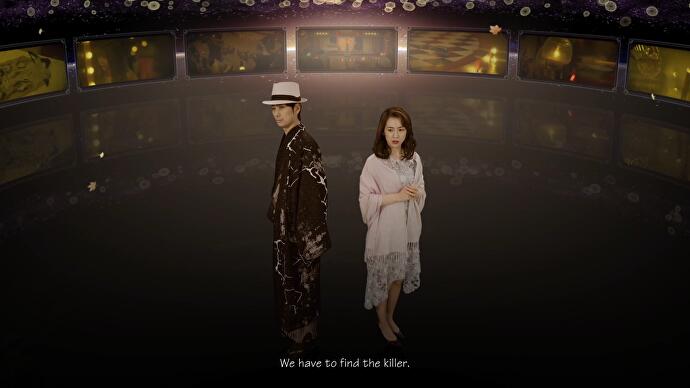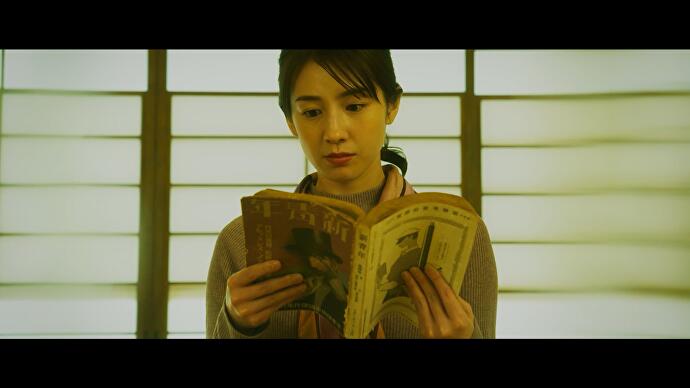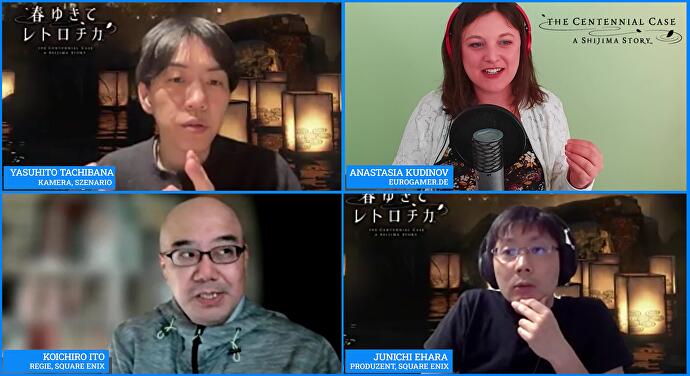How to overcome death without putting down the controller

In a pandemic where working directly with people seems exhausting, dangerous and often impossible, three developers of Square Enix the perfect challenge: Now more than ever they want to create real emotions in a video game – with real actors. Even if Koichiro Ito, Junichi Ehara and Yasuhito Tachibana already have successful works behind them, they decide; see this project through to the end. The trio finds their greatest motivation in the pandemic and in the tricky task of not being able to subsequently adjust scenes at will. I have with the creators of the crime game The Centennial Case: A Shijima Story talked about this exciting development. You can see the full interview in the video above.
All for one!
Koichiro Ito will be familiar to you from his work on Metal Gear Solid V, as will Junichi Ehara, the Yoko Taros most successful game – NieR: Automata – produced. And the film director Yasuhito Tachibana should also have pricked up his ears quite quickly, because he was able to achieve international success with the series “The Naked Director”. When Tachibana and Ehara first met, the idea of a live-action game sparked immediately. When Ito came along, it was clear: the game had to be a crime thriller with real actors!

The game is about a writer (played by Nanami Sakuraba), managed by her scientist friend (played by Yuta Hiraoka) becomes involved in a case involving the Shijima family. To crack the case, she reads books about the family’s greatest treasure: a fruit that promises eternal life. These stories transport them to different epochs in which there are also murder cases to be solved. What may sound like a convoluted episode is the concept of a cohesive, linear game that explores a wide variety of themes. But the real essence lies in nothing less than the subject of life and death.
Ito and Tachibana told me that murders are part of the mystery genre. This is often about dealing with death, “but not a single game has so far taken care of the effects of the victim, the inner struggle and the consequences for future generations,” notes Koichi Ito. “Overcoming death is the ultimate goal of mankind,” added Yasuhito Tachibana. The Netflix director says he always incorporated contrast into the work when filming. Namely that the West and the East deal with the topic of death very differently. While Western philosophy takes a scientific approach to helping people with things like medicine, he believes the Eastern method is a little different. He has tried to play with these two mindsets to keep the approach to the subject exciting and fresh for both sides. “I think the international audience will have a lot of fun with it,” he promises in an interview.

Conclusions are her hobby
What may initially appear to be a complex gameplay in the first image and video material for the crime game is described by Ehara as “simple gameplay”. Although the Taisho-, Shōwa-Time and modern are visited in the game, it is not the task of the players to jump through the events of space and time. The focus is clearly on logic and reasoning. According to the developer, observing the course of events closely and later bringing together the right theses is what makes this genre the most. “We tried to eliminate all superfluous game elements as much as possible,” explains Ehara. The players should therefore concentrate fully on the thriller. Despite the professional acting, The Centennial Case sees itself as a full-fledged game, not an interactive film.
Ehara emphasizes one thing in particular: “It was important to us that the viewers never want to put down the controller during the cutscenes. We experimented a lot with this, they should literally stay glued to the screen when the FMV (Full Motion Video) -Insert Scenes.” So there are some decisions in the game that map a branch, but you can’t affect the outcome of the scene with them. Just the reactions you can elicit from different characters. These junctions are part of the movie, while the gameplay takes place in the separate part of the game where you have to solve the murders.

Real people and a real pandemic
That game one live actionThe team knew from the start that it was going to be a crime thriller. But such a project does not come without obstacles. Ehara has completely forgotten the steps the game had to go through in the beginning, but he tells us that The Centennial Case was three years in development.
Tachibana says: “You couldn’t just keep fixing everything once you filmed a scene. Normally with games you have the opportunity to test the usability, after filming it becomes difficult. Also, the pandemic came with not only hygienic requirements, but also other restrictions in between.” But the team took it sporty and saw added value in a video game that was created analog – especially at a time when the rest of the world was making great strides into the digital world.
Meanwhile, Koichiro Ito, who worked on the 2008 Adventure 428: Shibuya Scramble, which also had real actors, gushed about the other games and series that inspired the new crime thriller. Wales Interactive has with Lateshift and Sam Barlow with Her Story and Telling Read make a good impression on the lead developer and also on immortality Ito is already looking forward to it. Black Mirrors interactive Bandersnatch Episode on Netflix could not go uncredited either, just like the Japanese director’s works Kon Ichikawa and the crime series all around The Kindaichi Case Files.

![]()
Reference-www.eurogamer.de